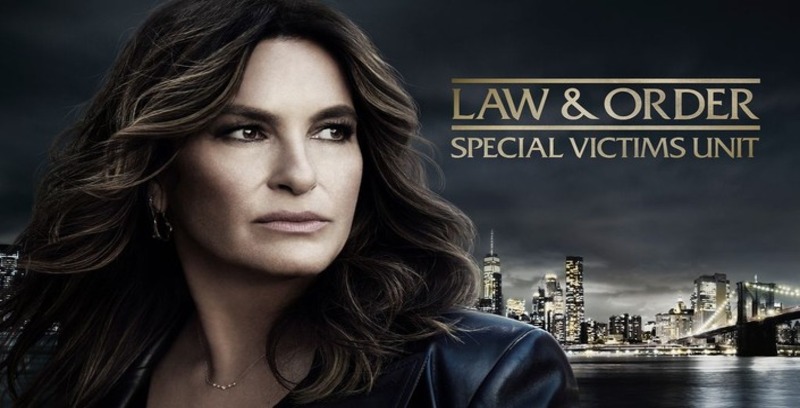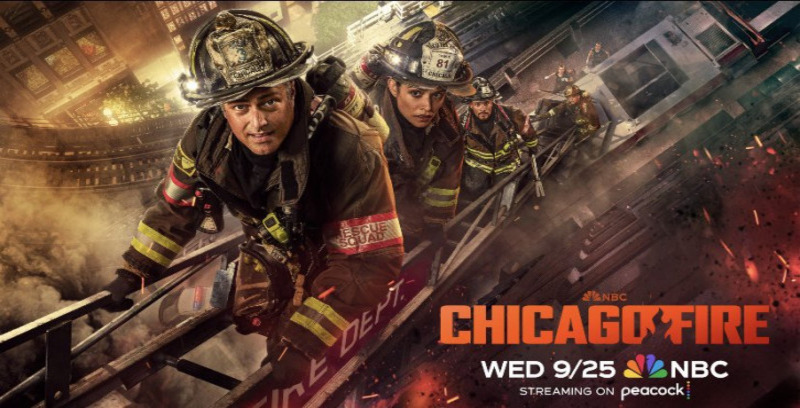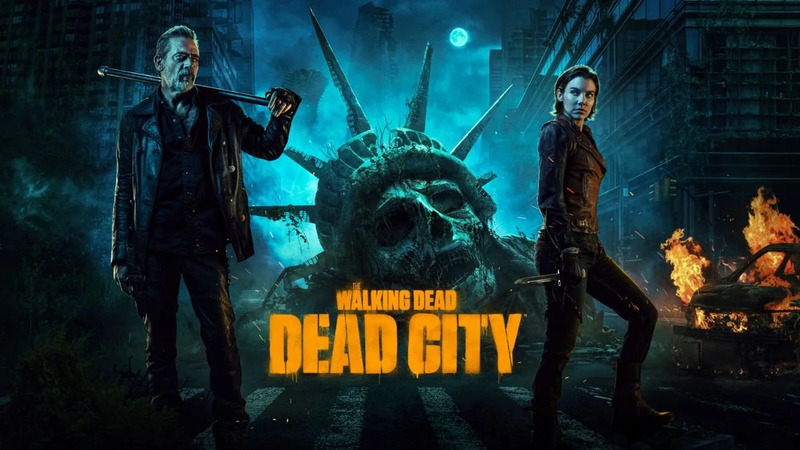Let’s talk about expectations.
Before I had ever consumed any of David Lynch’s filmography, I was given a very important piece of advice, which went something like this: Don’t go into anything from him with any expectations or preconceived notions of what might transpire, and don’t demand anything of it while watching it. Enjoying Lynch requires you to sit back, and absorb whatever the hell is happening on screen. If you do that, then it will never leave you.
When the Twin Peaks revival was first announced, I had seen much of Lynch’s work, including Twin Peaks (which was my introduction to him), and I knew that what he was going to give us in these eighteen episodes would not be anything like the original. I accepted that, and so was not surprised when I watched the baffling two hour premiere all the way back in May. "Lynch is going to be Lynch", I told people. And if you accept that, you’ll probably get something worthwhile out of the whole experience.
But as each week passed, I – and most people – gradually got used to The Return’s unique vibe. Like any great TV show, it was teaching us how to watch it, and eventually those of us that stuck with it got on its wavelength. We all couldn’t help but see a pattern emerging, as well as a way forward for the show. “We are gradually returning to the Twin Peaks of old!” so many thought. “The two Coopers will face off in Twin Peaks, Mr C will die, and everything will right itself. It’s the perfect way to end it!” It’s only now, looking back, that the folly of such thinking is apparent. We broke the cardinal rule of watching Lynch: we went into this finale with a set of expectations, a set of expectations that, for the first forty-five minutes, were being fulfilled. And then David Lynch took a hard left turn into something far more unsettling and opaque, and we were punished for thinking we knew what would happen.
Those first forty-five minutes – the bulk of “Part 17”, really was thrilling, and a terrific demonstration that Lynch and Frost can build to a relatively conventional climax if they’re inclined to do so. As so many of the show’s characters descended onto one location – Twin Peaks Sheriff’s station – the show reminded me of the likes of Breaking Bad or Justified, two shows that made a habit of ending their seasons by sliding each narrative strand into place with thrilling efficiency.

The scene that transpires in Frank Truman’s office is, in a sense, the first of two endings that Twin Peaks gave us last night. Mr C is dispatched (by Lucy of all people!) with a similar nonchalance with which we said goodbye to Richard, Hutch, and Chantal in “Part 16”. Then everyone gathers in a stunned silence as Freddie fights an orb containing Bob, eventually destroying it with one punch. It’s a visceral scene, Lynch’s direction making it seem far less silly than it seems on paper. But in the aftermath, the show refuses to give us what we want. After we get confirmation that Naido is in fact Diane, Lynch and Frost refuse to give us any meaningful interactions between the characters; refuse to give us any closure on the show’s supporting cast. Instead, Cooper’s face is held in double-exposure, time slows down, and Cooper’s face says “We live inside a dream”. It’s in this moment where it becomes very clear that the ending we’re about to get is not the one we were anticipating.
At its core, Twin Peaks has always been the story of a young girl who was senselessly murdered, and the FBI agent who desperately tried to make sense of it. In the mind of Dale Cooper, and many of the residents of Twin Peaks, the world in which they live was irreparably broken after the murder of Laura Palmer. This has been emphasised time and again this season, the world of The Return a fractured, emptier version of the one we knew, or thought we knew. Dale Cooper, with the help of Mike and Philip Jeffries, goes back in time to the night Laura was murdered, in an attempt to fix what is broken in the world. But as he is in the midst of saving her from her tragic fate – we see Laura’s body flicker and disappear from the place where Pete Martell found her – she is snatched away, seemingly by Sarah Palmer, or whatever you want to call the thing that inhabits her: Judy, the Experiment, it's all the one being.
It now becomes clear that Bob is not the real evil of Twin Peaks, but the thing that created him is. For all of Cooper’s noble efforts, he can’t change what happened to Laura, nor can he fix what happened in 1945, when the first atomic bomb was detonated. The evil he is up against is far too powerful. And so as Julee Cruise returns to sing “The World Spins”, we realise that life goes on, and that the past is off limits. The world is broken, and there’s no fixing it.

By dreaming of achieving a better world, one without such evil, we eventually get lost in the dream, as demonstrated by what happens to Cooper in “Part 18”. He and Diane make the decision to go...somewhere. Is it an alternate timeline, the result of Cooper’s time travel meddling? Or is it a dream, perhaps the creation of Laura or Coop, or, maybe most likely, Judy. Trying to discern actually where much of The Return’s final hour takes place has been the subject of much debate online in the wake of the finale, and while there are many excellent theories, the what and when of it all doesn’t really matter in the end.
The longer Coop and Diane spend in this place, the more they seem to get lost, losing parts of themselves, eventually becoming Richard and Linda. They have sex in a motel, trying to fix the damage that has been done to them over the years, but they can’t, just like Cooper can’t fix the past. As Coop resembles himself less and less, Diane has to hide his face. She knows that things can’t ever be the same.
Like Coop slowly seems to lose himself in this dream or alternate reality, the show itself seems to gradually lose some of its identity, whittling itself down to its core. All thought of the show’s myriad supporting characters and their silent suffering goes by the wayside, destined to be forgotten by an uncaring world. Aside from the Arm reciting one of her lines, Audrey does not feature, in spite of last week’s cliffhanger. When Dale Cooper arrives at Judy’s diner, he’s no longer the same man that woke from a coma in “Part 16”. Dale is still in there, and it seems like some of Mr C is too. And also Richard.

When he finds Laura, she has no knowledge of who she is, and goes by the name Carrie Page, a middle-aged waitress in Odessa who has just murdered a man. Like how Coop is slowly losing his identity, Laura has lost hers. Is she even Laura? They make the long drive to Twin Peaks, driving along long stretches of empty highway, the darkness of the surrounding country engulfing them. This dream of sorts is descending into a nightmare.
When they arrive at the Palmer house, Sarah Palmer doesn’t live there. Instead, it is inhabited by Alice Tremond, who bought it from a Mrs. Chalfont. These are names that are of great significance to the larger mythology, and strongly suggest that what we’re seeing is more than merely an alternate timeline. On the street outside the house, Cooper looks dejected and confused, asking, “What year is this?” The world in which he finds himself seems unmoored from time.
The note Twin Peaks leaves us on is one of intense horror. Carrie looks up at the Palmer house, and in front of our eyes seems to become Laura Palmer, or maybe she remembers who she was. A voice calls out her name, and Laura Palmer screams, and then the lights in the house suddenly go out. We are thrust into a darkness, a void that contains no answers, only more questions.

This moment is so scary partly due to Sheryl Lee’s performance, but is also due to what it seems to suggest about the story we’ve spent so many hours watching: that all of Dale Cooper’s efforts were for nothing, and that Laura – and the world – was always beyond saving. What actually happened in that final moment will be the subject of much debate for years to come, but there’s no denying the feeling of emptiness that Lynch and Frost choose to leave us with. Twin Peaks has always been a show about trying to make sense of a senseless, terrifying world, and the futility of that attempt. And so I can’t think of a better image on which to end the show than that of a woman whispering something indiscernible to the man who so desperately tried to save her, unable to realise that such a thing wasn’t possible.
Twin Peaks: The Return’s unsettling conclusion confirms its status as a modern masterpiece, a terrific deconstruction of the American myth. It painted a world that is irreparably damaged, filled with pain and suffering. But somewhere in between all that were moments of tremendous beauty and compassion, of small acts of kindness that rippled across dimensions and realities. A good-hearted insurance agent reunites with his loving wife and son. Two people who have been in love all their lives finally get together in their old age. A young troublemaker becomes a man his father would have been proud of. A man desperately tries to save a girl who can’t be saved, guiding her by the hand through the woods. In the face of such terrible evil, it’s these small moments of compassion that make Twin Peaks so resonant.
Sign Up for the SpoilerTV Newsletter where we talk all things TV!
Recommendations
Subscribe to:
Post Comments (Atom)











